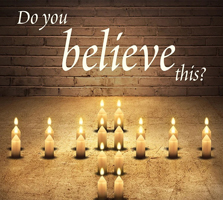
It was 57 years ago. Just after 6 p.m. on April 4, 1968, Martin Luther King Jr. is fatally shot while standing on the balcony outside his second-story room at the Lorraine Motel in Memphis, Tennessee. The civil rights leader was in Memphis to support a sanitation workers’ strike and was on his way to dinner when a bullet struck him in the jaw and severed his spinal cord. King was pronounced dead after his arrival at a Memphis hospital. He was 39 years old.
In the months before his assassination, Martin Luther King became increasingly concerned with the problem of economic inequality in America. He organized a Poor People’s Campaign to focus on the issue, including an interracial poor people’s march on Washington, and in March 1968 traveled to Memphis in support of poorly treated African-American sanitation workers. On March 28, a workers’ protest march led by King ended in violence and the death of an African-American teenager. King left the city but vowed to return in early April to lead another demonstration.
On April 3, back in Memphis, King gave his last sermon, saying, “We’ve got some difficult days ahead. But it really doesn’t matter with me now, because I’ve been to the mountaintop…And He’s allowed me to go up to the mountain. And I’ve looked over, and I’ve seen the Promised Land. I may not get there with you. But I want you to know tonight that we, as a people, will get to the promised land.”
King was no stranger to controversy. Though he had little experience in activism, King with a doctorate in theology was known for his speaches. In 1955, community leaders recruited him to be the spokesperson for the Montgomery bus boycott, one of the first major protests of the civil rights era. The boycott lasted for more than a year and resulted in the U.S. Supreme Court declaring racial segregation on public buses unconstitutional.
King’s role in that boycott transformed him into a national figure. In 1957, he co-founded the Southern Christian Leadership Conference to help encourage other communities to take up the crusade for civil rights.
5 years before his asssassination, he was focusing on desegregation before the landmark 1964 Civil Rights act. He was in Birmingham on a campaign of coordinated marches and sit-ins against racism and racial segregation in Birmingham, Alabama.
At the time, in parts of the country—especially in the South—blacks couldn’t eat at certain restaurants, continued to attend segregated schools (though the practice had been outlawed years earlier), and were unemployed at a rate nearly twice that of whites.
The non-violent campaign was coordinated by Alabama Christian Movement for Human Rights and King’s Southern Christian Leadership Conference. On April 10, a blanket injunction was issued against “parading, demonstrating, boycotting, trespassing and picketing”. Leaders of the campaign announced they would disobey the ruling. On Good Friday, April 12, King was roughly arrested with others.
King was not always popular with clergy due to his tactics. The day of his arrest, eight Birmingham clergy members wrote a criticism of the campaign that was published in the Birmingham News, calling its direct action strategy “unwise and untimely.”
LINKS
1 King wrote “Letter from a Birmingham Jail in response. King’s Letter has been called one of the most significant works of the Civil Right movement. The Letter
2 Audio from Dr. King
3 Forum in Feb., 1964 on the letter
4 King and the Book of Amos as reflected in the letter. King used the book of Amos throughout his career.
5 King’s Philosophy of Non-Violence
6 King Sermon – Remaining Awake Through a Great Revolution
7 Multimedia production of the “I have a Dream” speech








 Second Sunday after the Epiphany, Wedding at Cana
Second Sunday after the Epiphany, Wedding at Cana